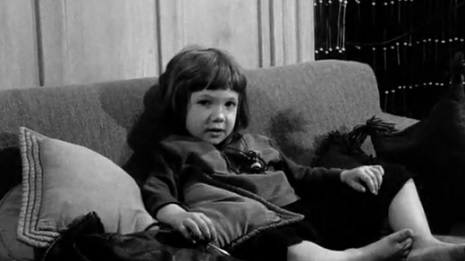
In 1970, amateur documentarian Ralph Arlyck made a short film on his downstairs neighbor’s four-year-old son, Sean. The eponymous 15 minute interview is one of the most stirring relics of hippie-era America. In the movie, a dirty child struggles to list off the days of the week, runs barefoot through the streets of San Francisco, and discusses smoking pot without a hint of discretion. Expressing anxiety at “getting busted,” Sean is unsure of the role or purpose of the police, and you can hear the stress in his voice as he parrots the anti-authoritarian rhetoric of the hippies. He’s too young to really understand “fuck the police,” and he’s left apprehensive about his own safety and security, and that of his parents, I’m sure.
When Sean (the documentary) made the rounds—even landing a screening at The White House—reactions were as strong as they were varied. Some saw Sean as the first in a new generation of children free of bourgeois values. Many others were (understandably) concerned. Sean’s purported drug use alone was enough to raise eyebrows, but even without a mention of pot, you see a dirty, somewhat nervous child that doesn’t appear to be receiving proper care. Predictions of his future ranged from stockbroker to drug dealer, but Sean quickly disappeared from the public eye.
In 2005 Ralph Arlyck made a follow-up to the film, called Following Sean, which is now streaming on Netflix. Hoping to sate his own curiosity about Sean’s adult life, Arlyck found Sean was neither a stock-broker, a freak, nor a name in an obituary, but a working class electrician with a confident industriousness and a quiet humor. The film filled in the gaps of Sean’s life; he and his siblings (at least one of which didn’t fare as well as he did in terms of life success) were split up and moved around during his younger years. Sean’s father practiced free love, and once brought Sean with him to meet a teenage girlfriend. Sean’s mother eventually took the children after separating from their father, and she began to follow a guru.
Sean admits that he wasn’t keen on the guru, but at least his mother was more committed to providing him stability than his father. You can see how Sean’s childhood formed his adult values, which are at least somewhat of a reaction to his father’s erratic parenting. While he doesn’t complain much about his upbringing and appears to have a good relationship with his father (who is now financially dependent on his children), he’s clearly not a fan of the hippie lifestyle, especially not for families.
When you see Sean with his own son, he’s engaged and dedicated, determined to be maintain a consistency that he never had. Adult Sean values family and security above all else, and he truly seems happy. Still, the image of a young Sean has so much impact; while no one can predict the trajectory of a child, you get the impression he escaped a rough life by the skin of his teeth.